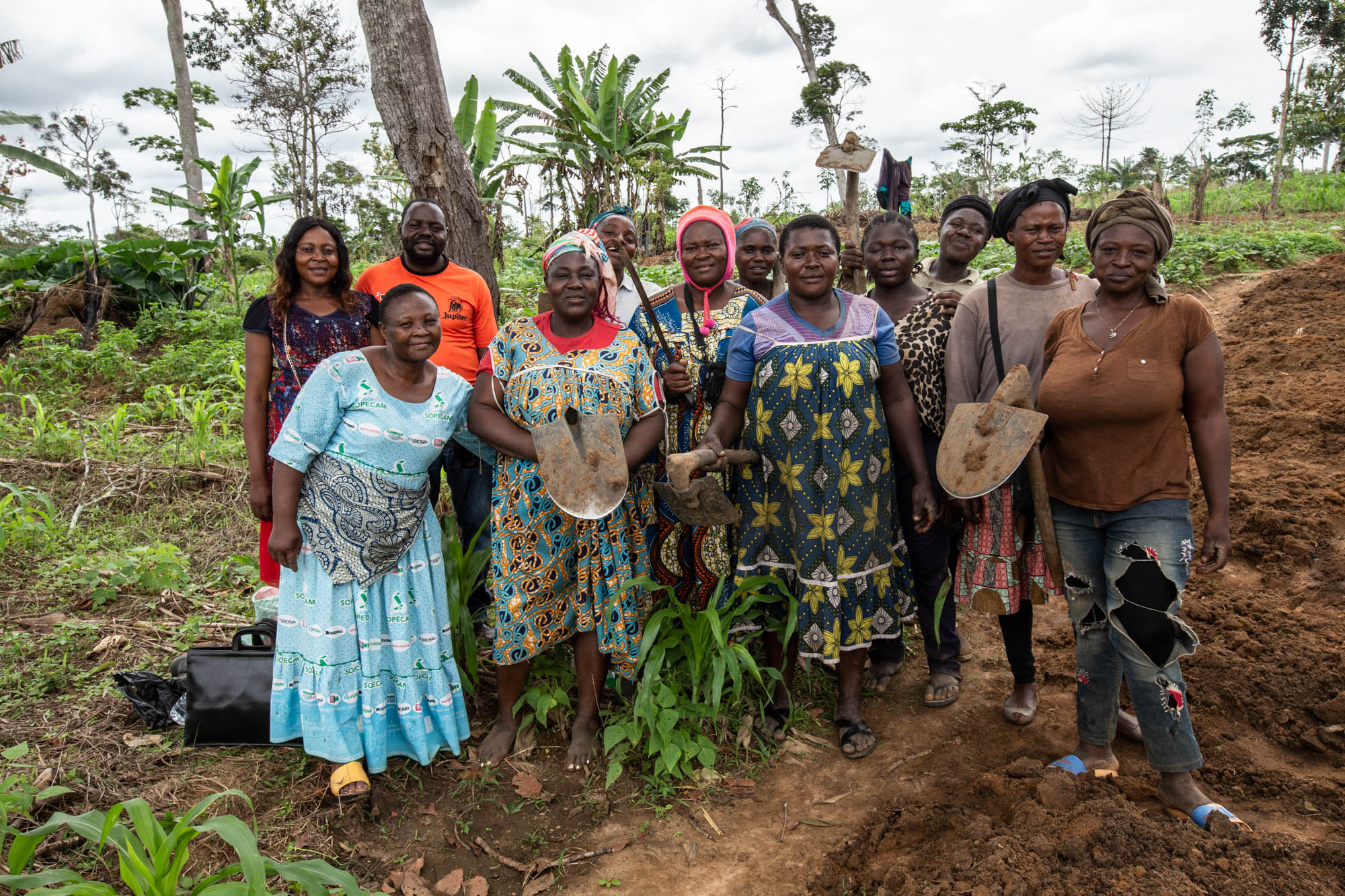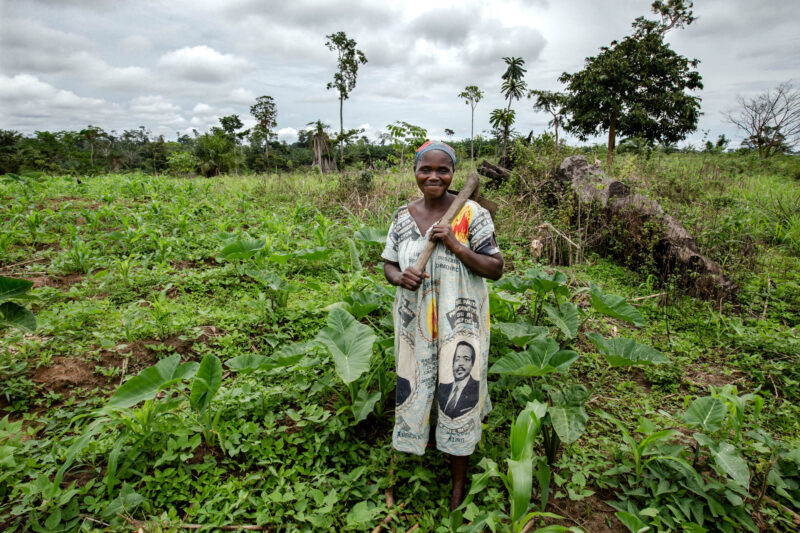Cameroon: Supporting farmers to ensure long-term livelihoods and food security
Story

A program in rural Cameroon is working with a cooperative of Indigenous farmers to produce crops and adapt to climate change.
Located about an hour outside Cameroon’s capital Yaoundé, the Mbalmayo area has rich and fertile soil ideal for harvesting. It is a commercial and transportation hub known for a variety of goods including textiles, fruits, vegetables, and handicrafts.
Their main crop is corn, but farmers also grow other staples that take less time to mature like plantains, yams, and cassava. They are experimenting with crops not common to the region and, so far, have had success with cabbage.
But climate change has made it difficult for farmers to predict weather patterns for planting. The war in Ukraine has also impacted the cost of fertilizer. Reliant on rainfed agriculture and lacking resources such as credit, these farmers are vulnerable.
The agricultural program run by Cuso International’s local partner Ministère de la Promotion de la Femme et de la Famille (MINPROFF) is working to build the farmers’ resilience to the impacts of climate change. Practicing climate-smart agriculture will help ensure their long-term livelihoods and food security.
The program consists of 13 women and four men. By using sustainable practices, such as agroforestry and soil conservation, smallholder farmers reduce environmental degradation and build resilience to climate change.
“We have learnt a lot: how to conduct business in the markets, how to improve the health of the soil to increase our yields in the fields. We have a good partnership with Cuso International, and it’s been a great journey so far. We wish to continue forward. We have much more work to do,” said Essadjo Kono Emilienne, the leader of the cooperative.
 With training and capacity-building activities to improve agricultural skills, the program helps improve nutrition and increases the economic empowerment for women and girls in the region. Training and support for more efficient farming also means women and girls, who are often responsible for domestic chores and other unpaid care work, have more time to pursue other activities.
With training and capacity-building activities to improve agricultural skills, the program helps improve nutrition and increases the economic empowerment for women and girls in the region. Training and support for more efficient farming also means women and girls, who are often responsible for domestic chores and other unpaid care work, have more time to pursue other activities.
The members of the cooperative also support each other. After one farmer’s husband died, the community came together to support the woman and her children. It is customary that after a women’s husband passes, she is not able to work for one year. The smallholder farmers managed her plot of land for her, providing the woman the ability to sustain and provide for her children.
In the future, the farmers hope for additional support to build a general store where the cooperative can package and sell a variety of products. Getting an additional machine would also give the farmers the ability to process and ground the corn, making other products such as cornmeal and corn flour.